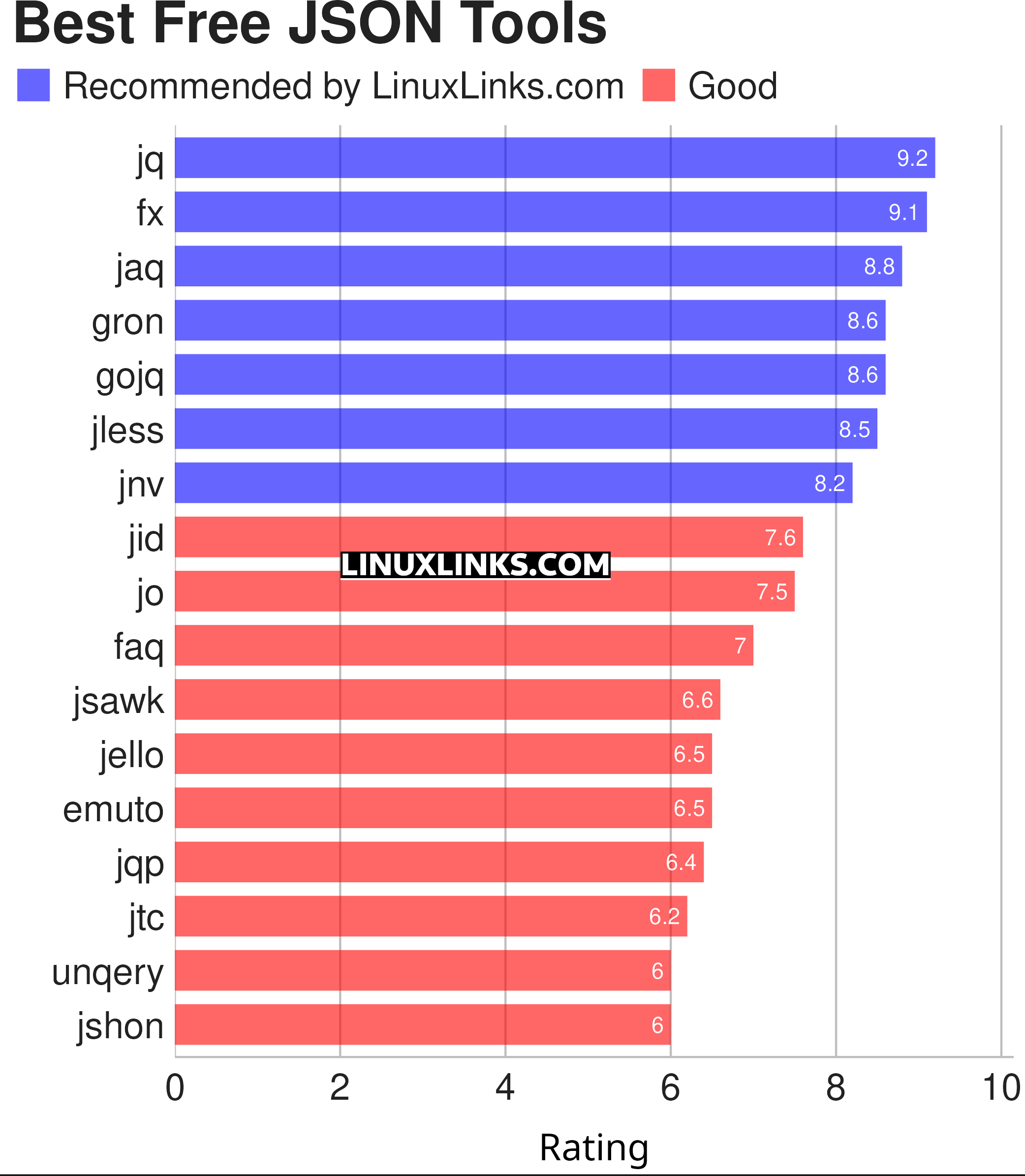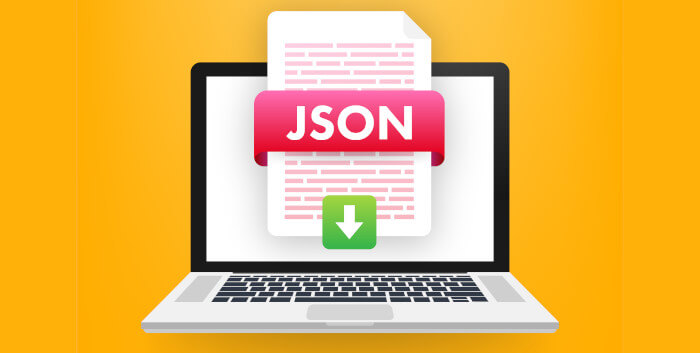JavaScript Object Notation (JSON) is a standard, popular and lightweight data text-oriented format based on JavaScript object syntax to represent structured data. You can use JSON independently of JavaScript, but it strongly resembles JavaScript object literal syntax, and several programming environments can interpret (parse) and create JSON.
JSON is often adopted in web services and APIs — enabling web applications to transfer and retrieve data with a common format. JSON can be used with many modern programming languages. JSON is considered one of the popular, easiest, and lightweight and formats used for interaction between services.
JSON has attracted the attention of tool builders, who have created a variety of tools for reformatting, validating, and parsing JSON.
Here’s our verdict captured in a legendary LinuxLinks-style ratings chart. They are all free and open source goodness.

Let’s explore the 17 JSON tools. For each title we have compiled its own portal page, a full description with an in-depth analysis of its features, together with links to relevant resources.
| JSON Tools | |
|---|---|
| jq | Lightweight and flexible command-line JSON processor. It's like sed for JSON data |
| fx | JavaScript Object Notation (JSON) viewer with streaming and mouse support |
| jaq | jq clone focused on correctness, speed, and simplicity. |
| gron | Transforms JSON into discrete assignments to make it easier to grep |
| gojq | Pure Go implementation of jq |
| jless | Command-line JSON viewer written in Rust |
| jnv | Navigates JSON offering a viewer and filter editor |
| jid | JSON incremental digger by using filtering queries |
| jo | Small utility to create JSON objects |
| faq | Billed as a more flexible jq supporting additional formats |
| jsawk | Like awk, but for JSON |
| jello | Filter JSON and JSON Lines data with Python syntax |
| emuto | Small language for manipulating and restructuring JSON and other data files |
| jqp | TUI playground to experiment with jq |
| jtc | Extract, manipulate and transform source JSON |
| unqery | Query and transform JSON data |
| jshon | Parses, reads and creates JSON. It's designed to be as usable as possible |
This article has been revamped in line with our recent announcement.
 Read our complete collection of recommended free and open source software. Our curated compilation covers all categories of software. Read our complete collection of recommended free and open source software. Our curated compilation covers all categories of software. Spotted a useful open source Linux program not covered on our site? Please let us know by completing this form. The software collection forms part of our series of informative articles for Linux enthusiasts. There are hundreds of in-depth reviews, open source alternatives to proprietary software from large corporations like Google, Microsoft, Apple, Adobe, IBM, Cisco, Oracle, and Autodesk. There are also fun things to try, hardware, free programming books and tutorials, and much more. |

JSON is a good format for data exchange and much better than XML